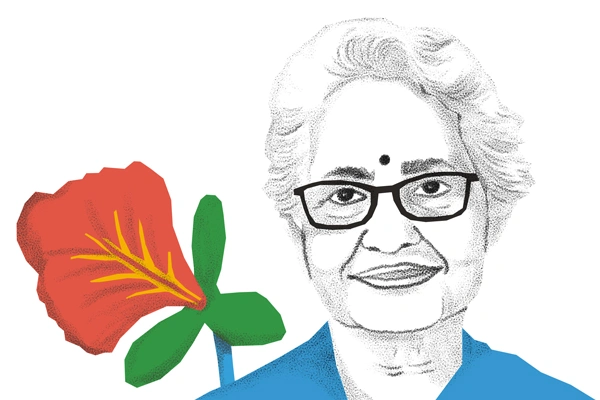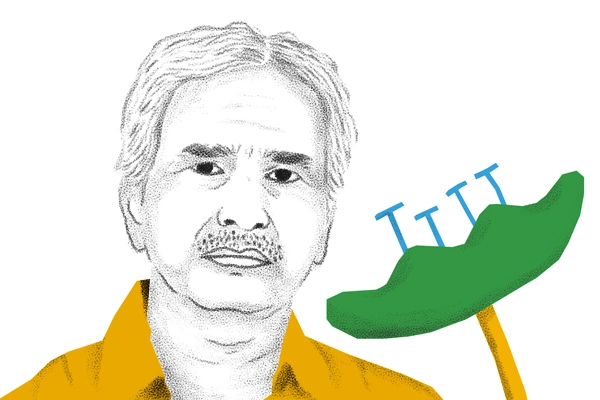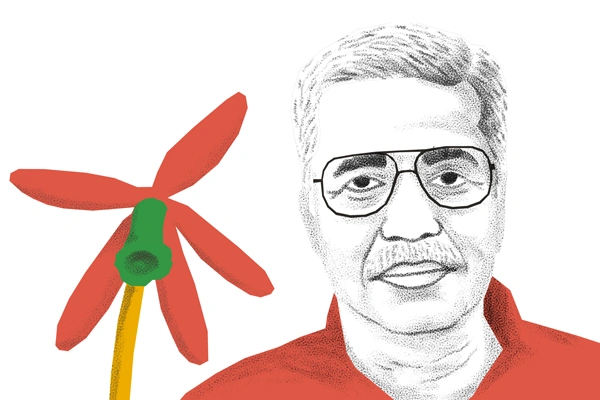
Loading...

Loading...
The language for Parag Author Prize 2025 is Hindi.
The Author Prize is awarded to authors writing for children since the recent past and their works exhibit a strong literary and contemporary voice are eligible for the award.
1. Nomination
The Award opens by inviting nominations from empanelled members. Individuals, organisations, publishers and other stakeholder of the children’s literature sector who have been committed to creating and advocating good quality children’s literature are invited to nominate.
2. Longlists
Longlists are drawn from the nominated authors and illustrators in consultation with the jury. The respective longlists comprise of around 6 to 8 authors/illustrators. A bibliography is put together for each longlisted author/illustrator and their books purchased for jury reading.
3. Shortlists
The jury reads the longlist works over a few months and independently shortlists 3 or 4 authors/illustrators.
4. Winners
The winners are selected through a discussion among the jury members; the meeting is anchored by Parag. The author/illustrator shortlist is discussed in-depth along with precise reference to their works, contribution and impact. The winners are announced at the Parag Utsav.
1. Authors who have written a minimum of 2 books qualify for the Parag Author Prize. Writings in magazines may also be considered in addition to the published books. Only magazine features are not accepted.
2. Nomination can be based on original writings. It may include original re-telling of traditional literature, with words of the author’s own. Translated and adapted works are not referred to by the jury.
3. Self-publications may be accepted for jury reference only in addition to the books produced by the publisher.
4. Authors’ works in the last 5 years, from 1st January 2020 till date, are eligible.
5. The author is active, and her/his works are accessible to children.
6. Excellence developed through an eagerness to explore and experiment with ideas, genres and the possibilities of their craft.
7. Stories/visual narratives that are culturally appropriate and avoid/challenge stereotypes.
8. Demonstrate growth and willingness to break known barriers in what defines a children’s author/illustrator.
9. The author may have written for any age between 0 to 18.
10. The author’s works may include one or more genre — fiction, non-fiction, drama and poetry. Compilations and abridgements are not eligible.
11. The Parag Author Prize is not given posthumously.
1. Is the author prize specific to one language?
Yes, the author category is based on one Indian language. Every year, an Indian language that is different from the previous year is selected.
2. What is the language of Parag Author Prize 2025?
Hindi.
3. Are the illustrator categories also language specific?
The illustrator categories are not language specific. Illustrators whose works are published in India, illustrated for books of any Indian language, including English. However, for regional languages, books must be available in translation for jury reading.
4. Who can nominate?
An empanelled group of various stakeholders of the children’s literature sector in India can nominate. Selected members are invited by Parag to be on the empanelled group. They are librarians, organisations committed to children’s reading, publishers and children’s literature enthusiasts and experts.
5. What is the judging process?
A longlist of authors and illustrators are drawn from the nominations received. Thereafter, books of the longlisted authors and illustrators are procured and sent to both juries. The respective jury shortlists authors and illustrators, and based on the shortlist the winner is decided by them through a consensus.
6. When are the winners announced?
Winners are announced at the Parag Utsav in December, 2025.

Dr. Mukul Priyadarshini, a Ph.D. in Linguistics, taught in the B.El.Ed. Programme at Lady Shri Ram College and at Miranda House, University of Delhi. She has been professionally associated with government organisations such as NCERT, NCTE, CBSE etc, and civil society organisations such as Eklavya, Ankur Society for Alternatives in Education, Organisation for Early Literacy Promotion (OELP), Tata Trusts etc. Her research interests include the position of Languages in Education, the discursive nature of Hindi, and the politics of languages in multilingual societies.
Mukul strongly believes in bringing the subtleties and aesthetics of languages into the discourse of education through rich children’s literature. She has been closely engaged in fostering the linguistic diversity of our classrooms as an editor, translator and educationist.
Dr. Mukul Priyadarshini, a Ph.D. in Linguistics, taught in the B.El.Ed. Programme at Lady Shri Ram College and at Miranda House, University of Delhi. She has been professionally associated with government organisations such as NCERT, NCTE, CBSE etc, and civil society organisations such as Eklavya, Ankur Society for Alternatives in Education, Organisation for Early Literacy Promotion (OELP), Tata Trusts etc. Her research interests include the position of Languages in Education, the discursive nature of Hindi, and the politics of languages in multilingual societies.
Mukul strongly believes in bringing the subtleties and aesthetics of languages into the discourse of education through rich children’s literature. She has been closely engaged in fostering the linguistic diversity of our classrooms as an editor, translator and educationist.

Prabhat, devoted to writing for children in Hindi, has several titles to his name and published by a range of publishers. His first published books appeared in 2005 – Kalibai by Room to Read, and Paniyon ki Gadiyon Mein by Lokayat. Writing in children’s magazines has also been an intrinsic part of his writing career and has several of his poems published in magazines. Prabhat’s writing captures a wide age group with humour and empathy. He has emerged as a pioneer of the contemporary style of writing for children using language that is simple and often local. He holds the ability to write across genres and about conflict in a style that is tender yet complex. Prabhat’s contribution to children’s literature has been so intense that his work has secured a place in the domain of education. Prabhat has received the Big Little Book Award in 2019, awarded by the Parag Initiative of Tata Trusts, recognizing his significant contributions to children’s literature in Hindi.
Prabhat, devoted to writing for children in Hindi, has several titles to his name and published by a range of publishers. His first published books appeared in 2005 – Kalibai by Room to Read, and Paniyon ki Gadiyon Mein by Lokayat. Writing in children’s magazines has also been an intrinsic part of his writing career and has several of his poems published in magazines. Prabhat’s writing captures a wide age group with humour and empathy. He has emerged as a pioneer of the contemporary style of writing for children using language that is simple and often local. He holds the ability to write across genres and about conflict in a style that is tender yet complex. Prabhat’s contribution to children’s literature has been so intense that his work has secured a place in the domain of education. Prabhat has received the Big Little Book Award in 2019, awarded by the Parag Initiative of Tata Trusts, recognizing his significant contributions to children’s literature in Hindi.

Prabhat Kumar Jha is a pedagogue, writer and editor. He has worked with the Ankur Society of Alternatives in Education for the last thirty years. Prabhat has been instrumental in creating several writers’ collectives across five of Delhi’s working-class neighbourhoods. In collaboration with a team of facilitators, he has created spaces where the creative energies of children and young adults are drawn into intellectual practices, honed across multiple interactions with the locality, the city and the wider digital world. Over the years, these collectives have created an extensive body of published work in the form of anthologies and articles. Prabhat has led these young writers and researchers to collaborate with leading international academic institutions and universities. Prabhat’s work can be located in the interstices between pedagogy, literature, urban studies and labour.
Prabhat Kumar Jha is a pedagogue, writer and editor. He has worked with the Ankur Society of Alternatives in Education for the last thirty years. Prabhat has been instrumental in creating several writers’ collectives across five of Delhi’s working-class neighbourhoods. In collaboration with a team of facilitators, he has created spaces where the creative energies of children and young adults are drawn into intellectual practices, honed across multiple interactions with the locality, the city and the wider digital world. Over the years, these collectives have created an extensive body of published work in the form of anthologies and articles. Prabhat has led these young writers and researchers to collaborate with leading international academic institutions and universities. Prabhat’s work can be located in the interstices between pedagogy, literature, urban studies and labour.